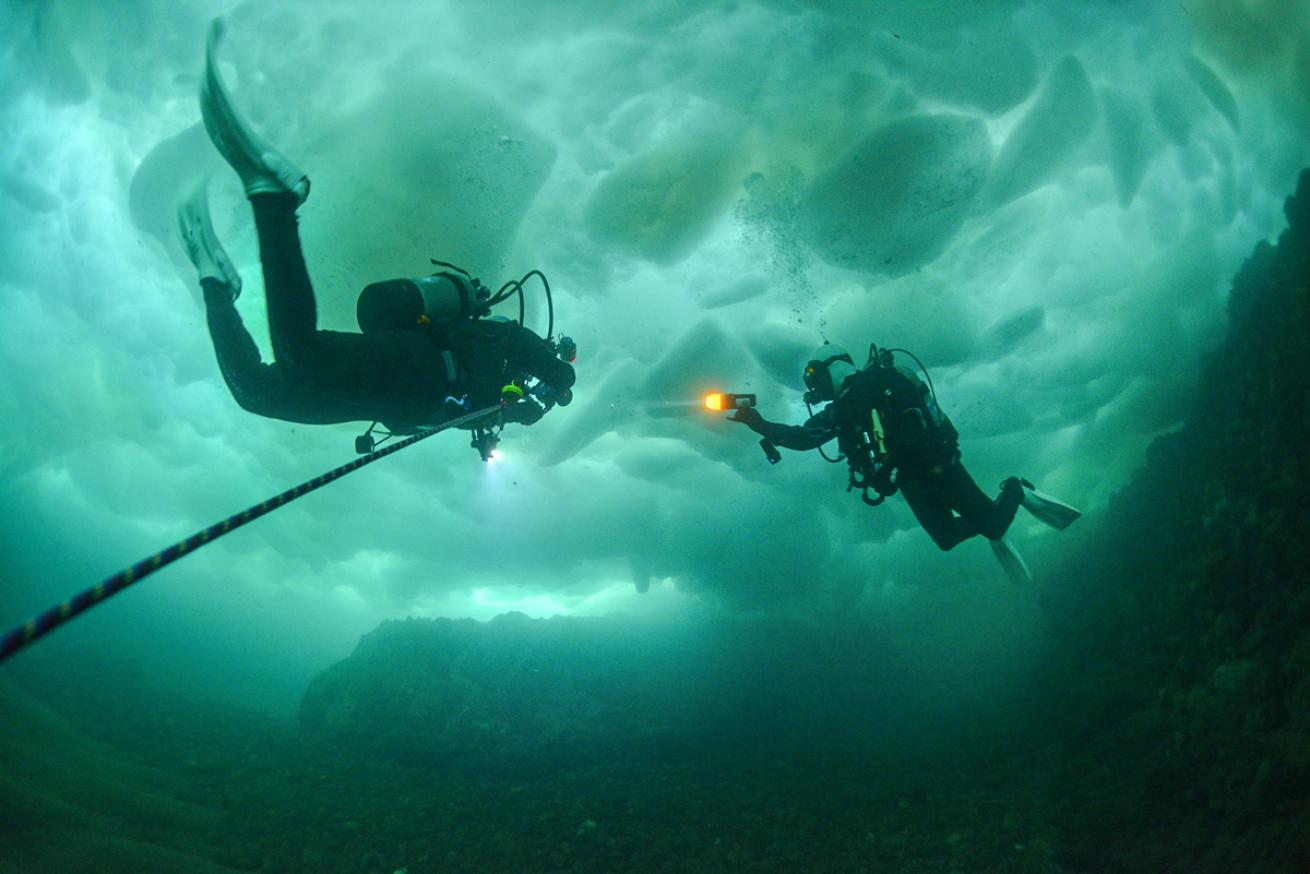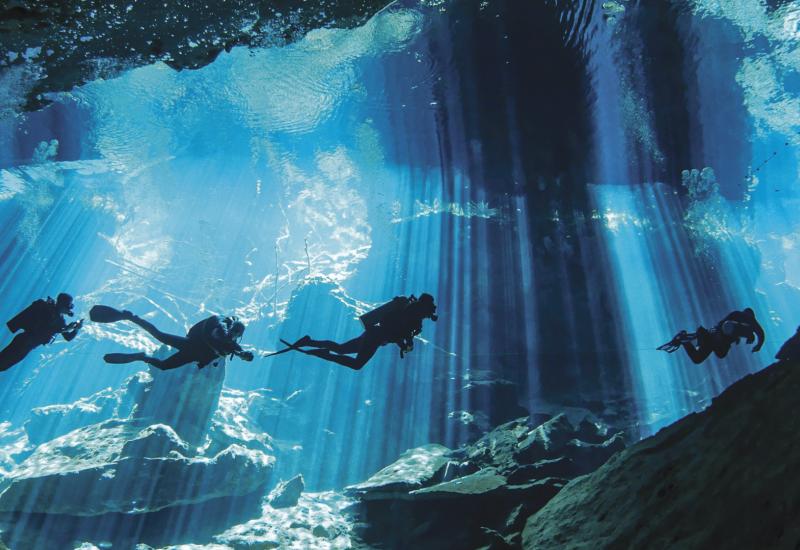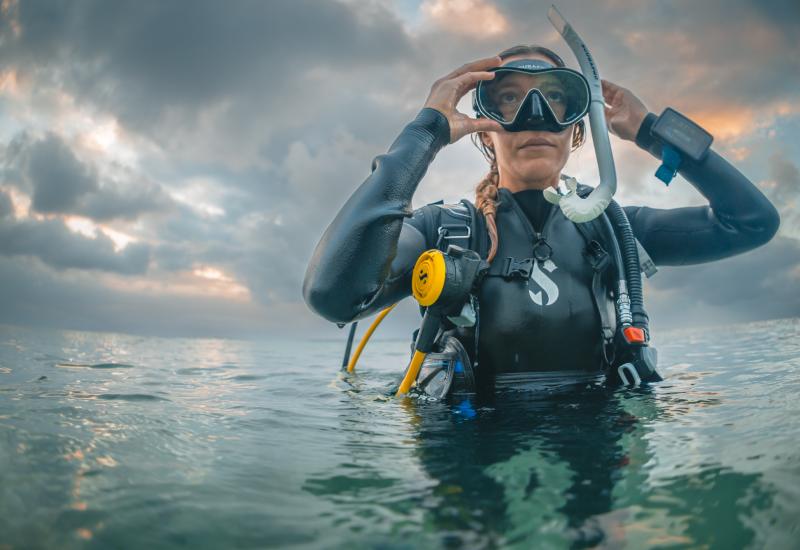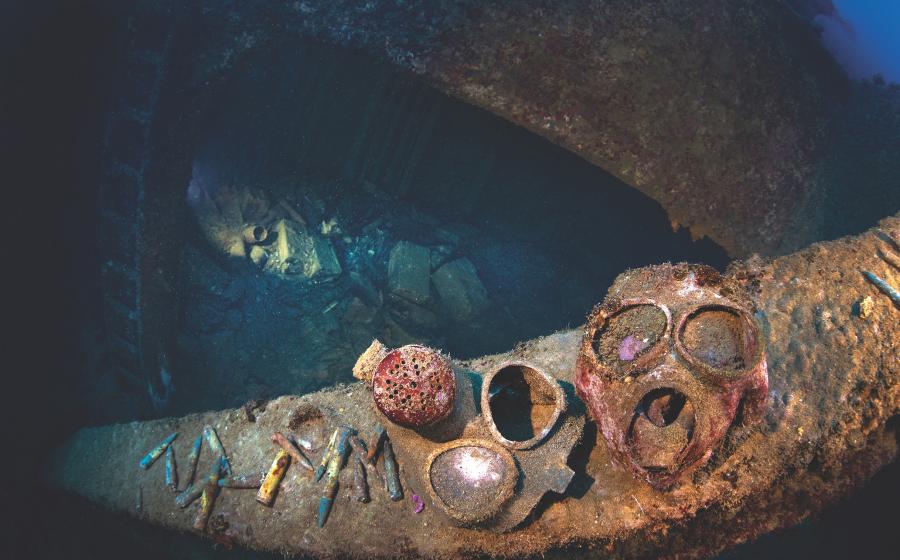What You Need to Know About a PADI Ice Diver Specialty

ShutterstockDiving under ice reveals an entirely new world, and requires specialized training.
Few dive experiences are so surreal as slipping through a hole in a frozen lake and exploring upside-down landscapes as fractals of sunlight shine through the underside of an ice sheet. “When I post pictures of my ice diving trips on my blog or social media, they get more attention than anything else because the scenes underneath the ice are so surreal,” says Rich Synowiec, PADI Course Director and owner of Divers Incorporated in Ann Arbor, Michigan.
Ice diving presents challenges, and risks, that you don’t have to worry about on an average open-water dive. The PADI Ice Diver specialty covers the skills you need to appropriately manage your risk and confidently venture beneath the ice.
Benefits
Diving under ice opens up underwater experiences few have had, and expands your diving season. “Our dive sites are frozen over four months of the year in the Midwest, so ice diving is a must for those of us who want to dive year-round,” Synowiec says. “We also get spectacular visibility in the winter that offers a totally new perspective on our local dives at places like White Star Quarry and Lake Superior or Lake Huron.”
Divers should never attempt ice diving without first learning from an experienced instructor because of the specialized equipment and skills it requires.
What You'll Learn
The PADI Ice Diver specialty covers everything from special equipment considerations, such as exposure protection and the right regulator for near-freezing temperatures, to how to cut a hole in the ice. You also learn how to rig safety lines, and how to follow a “two-up, two-down” system so each diver has a tender manning their line at the surface for safety.
Synowiec says he recommends divers earn their Dry Suit Diver certification before taking the Ice Diver course. “I want students to have experience diving with their drysuits before they go under the ice.” To complete the Ice Diver certification, students make three ice dives with their instructor over two days. Divers must be 18 years old and have at least an Advanced Open Water certification.










